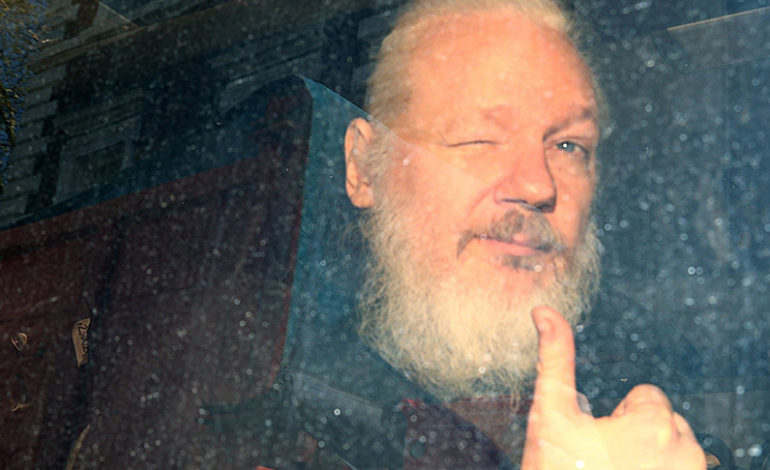On April 11, the ongoing saga of journalist and transparency activist Julian Assange took a dangerous turn. Ecuador’s president, Lenin Moreno, revoked his asylum in that country’s London embassy. British police immediately arrested him — supposedly pursuant to his “crime” of jumping bail on an invalid arrest warrant in an investigation since dropped without charges, but, as they admitted shortly thereafter, actually with the intent of turning him over to U.S. prosecutors on bogus “hacking” allegations.
The U.S. political class has been after Assange for nearly a decade.
In 2010 WikiLeaks, the journalism/transparency service he founded, released information revealing U.S. war crimes in Iraq and Afghanistan, as well as State Department cables exposing — among other things — Hillary Clinton’s attempts to have American diplomats plant bugs in the offices of their U.N. counterparts (Clinton, at one point, tried to raise the possibility of having him murdered for embarrassing her so).
In 2016, WikiLeaks released Democratic National Committee emails — provided by an as yet unidentified whistleblower — exposing the DNC’s attempts to rig the Democratic presidential primaries in Clinton’s favor.
At no point has Assange been credibly accused of a crime. He’s a journalist. People provide him with information. He publishes that information. That’s an activity clearly and unambiguously protected by the First Amendment.
Even if Assange were a U.S. citizen, and even if his activities had taken place in territory under U.S. jurisdiction, there’s simply no criminal case to be made against him.
So they’re manufacturing one out of whole cloth, accusing him of “hacking” by asserting that he assisted Chelsea Manning with the technical process of getting the 2010 information to WikiLeaks.
But once again: Assange is not a U.S. citizen, nor at the time of his alleged actions was he anywhere that would have placed him under the jurisdiction of the United States.
Even if he did what he’s accused of doing, the current state of affairs is the equivalent of the city government of Chicago asking Norway to extradite a French citizen on charges of not cutting the grass at his villa in Italy to the specifications of Chicago’s ordinance on the subject.
There are certainly criminal charges worth pursuing here.
The U.S. Department of Justice should appoint a special counsel to probe the Assange affair with an eye toward firing, seeking the disbarment of and prosecuting (for violations of U.S. Code Title 18, Sections 241, Conspiracy Against Rights, and 242, Violation of Rights Under Color of Law) the DoJ bureaucrats who hatched this malicious prosecution.
The first step in the process, though, is for President Trump to pardon Julian Assange for all alleged violations of U.S. law on or prior to April 11, 2019.
Assange is a hero. Time to stop treating him like a criminal.
- Thomas L. Knapp (Twitter: @thomaslknapp) is director and senior news analyst at the William Lloyd Garrison Center for Libertarian Advocacy Journalism (thegarrisoncenter.org). He lives and works in north central Florida.






Leave a Reply